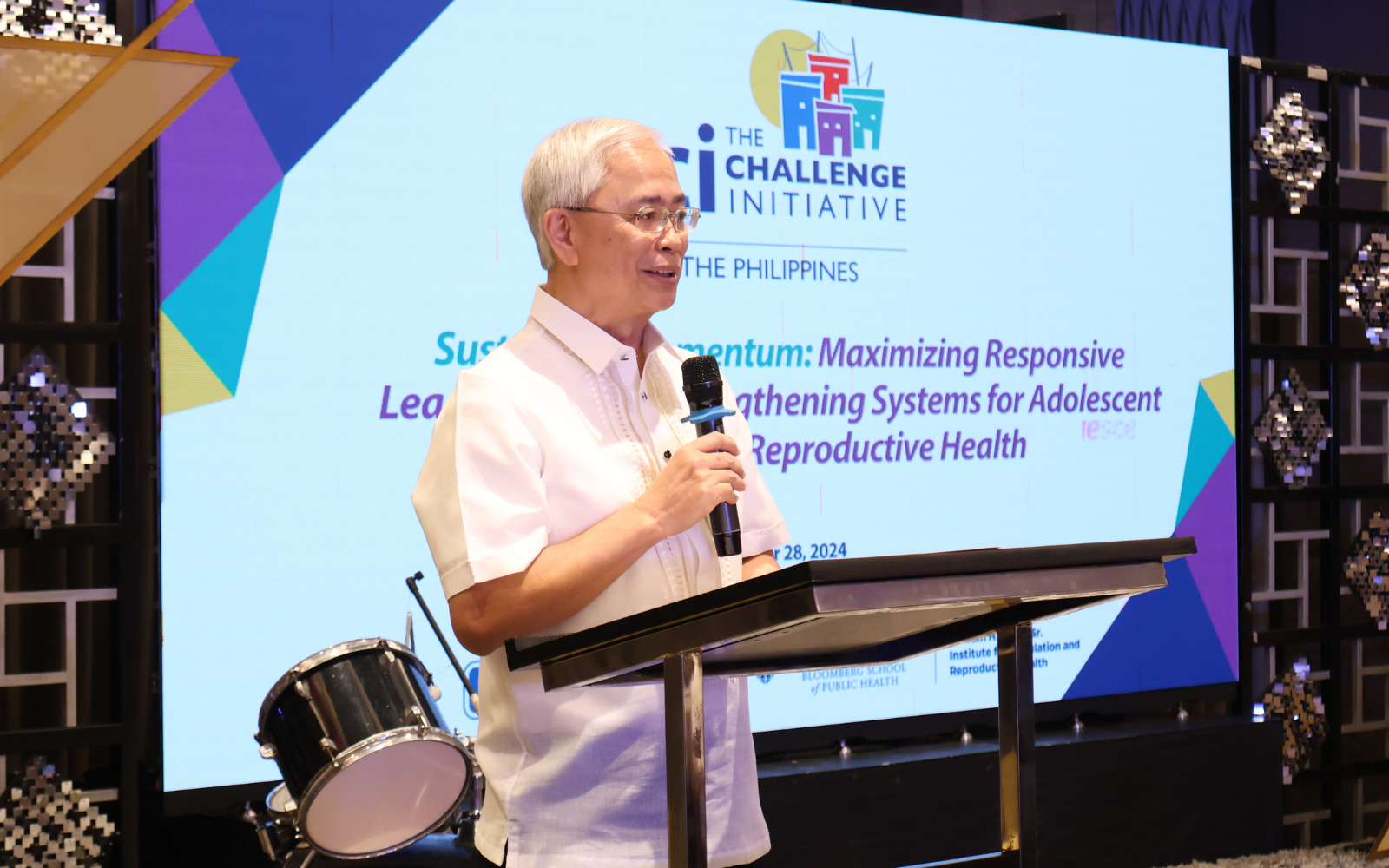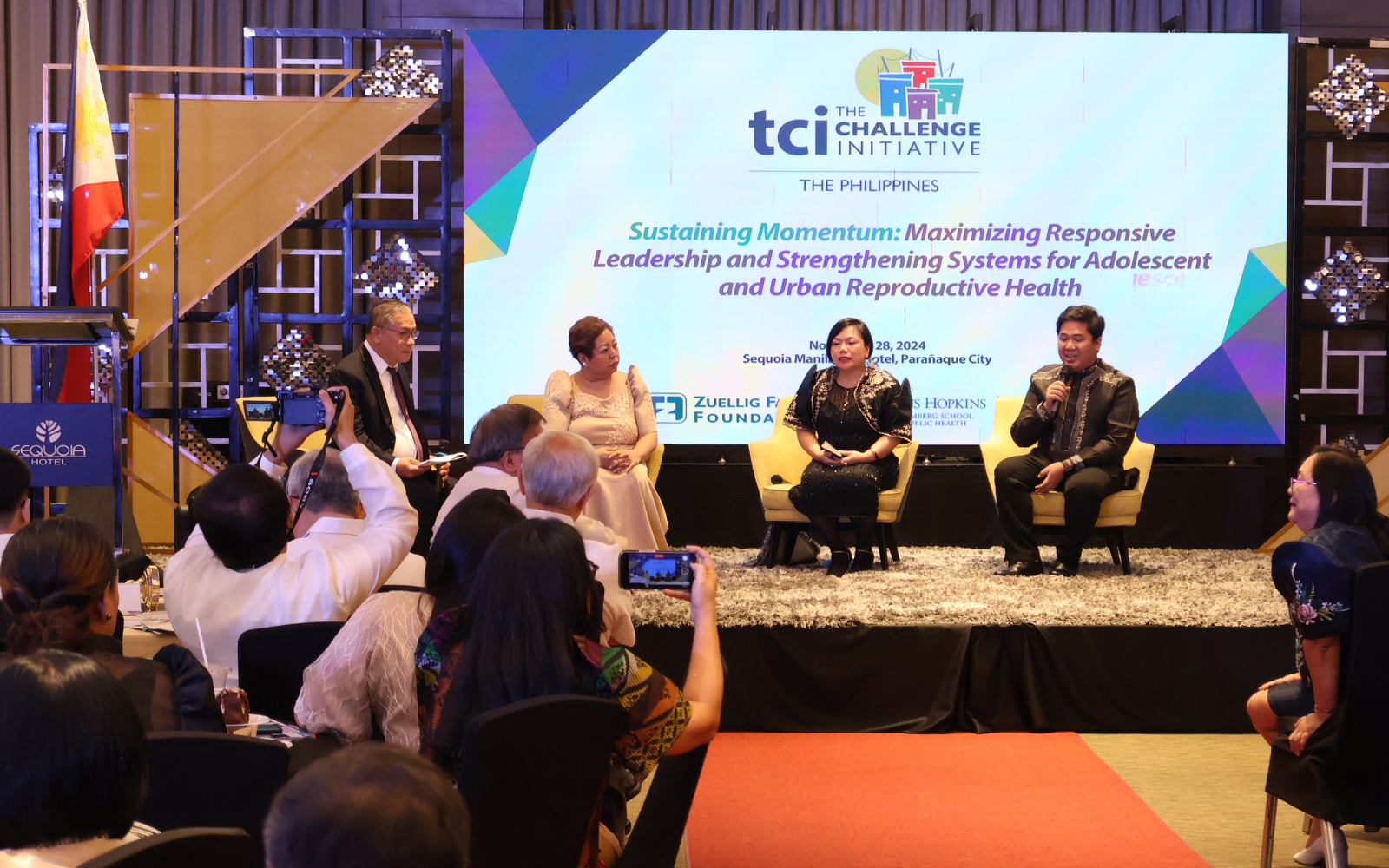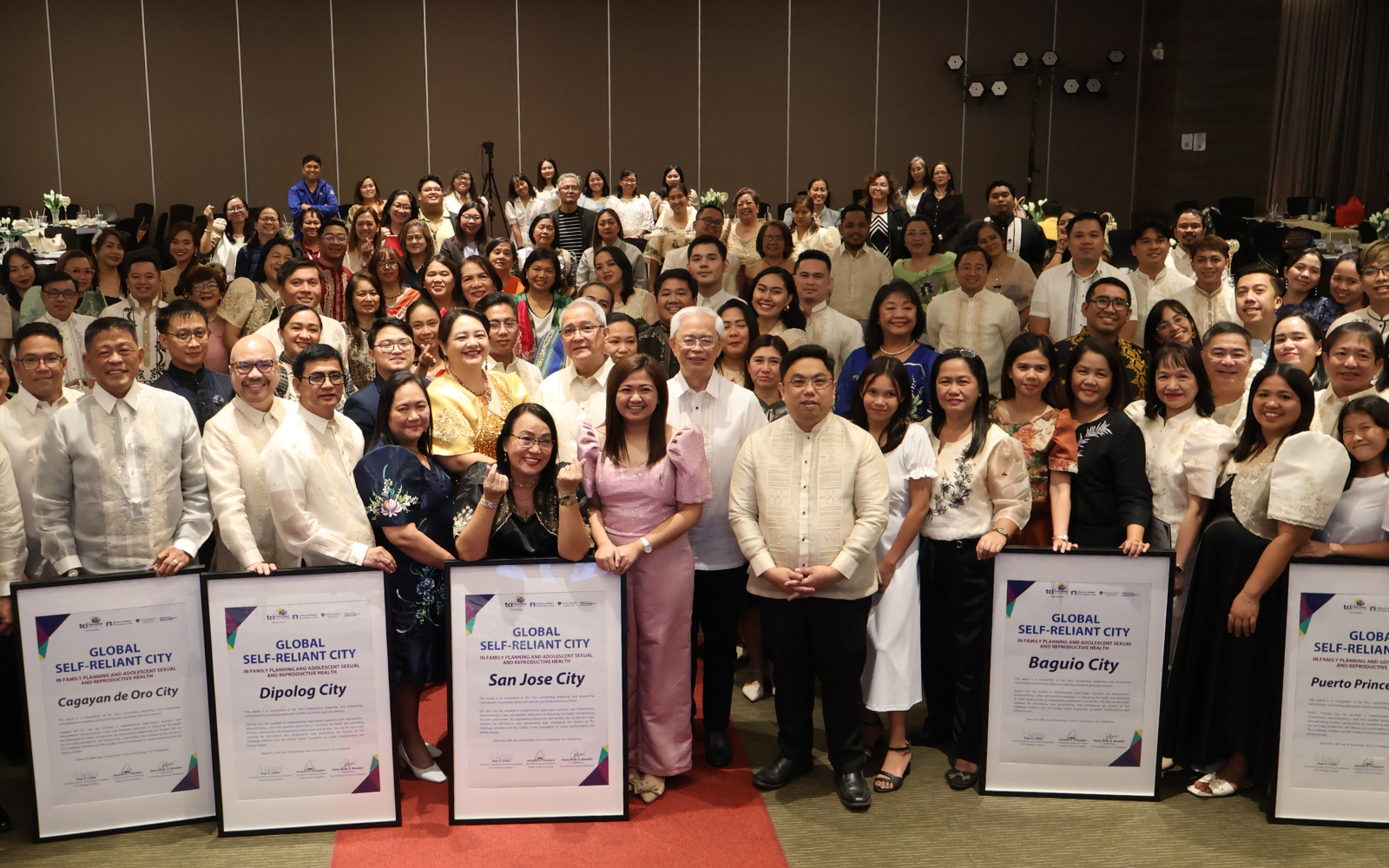Five Cities Celebrate Milestone in Adolescent Health and Family Planning Efforts
News | by Krizzia Esperanza

Five cities—Cagayan de Oro, Dipolog, Puerto Princesa, Baguio, and San Jose—celebrated their graduation from The Challenge Initiative (TCI)-Philippines program on November 28, 2024. The event, held during the TCI Graduation Colloquium, showcased the remarkable achievements of these cities in addressing adolescent health and family planning challenges.
Since 2020, TCI-Philippines, co-managed by the Zuellig Family Foundation (ZFF) and the William H. Gates Sr. Institute for Population and Reproductive Health (Gates Institute), has collaborated with local government units (LGUs), the Department of Health (DOH), and the Commission on Population and Development (CPD). This partnership empowered leaders, health workers, master coaches, and youth advocates to create adolescent-friendly communities and expand access to quality health services.
The graduating cities have seen substantial improvements in key health indicators. Adolescent birth rates (ABR) significantly declined, with San Jose reducing its ABR from 43 (per 1,000 births) in 2020 to an estimated 28 in 2024, Cagayan de Oro from 39 in 2020 to an estimated 30 in 2024, and Dipolog from 50 in 2020 to an estimated 32 in 2024. Puerto Princesa and Baguio, which have maintained an ABR below 30 since 2020, sustained this level through 2024.
Modern contraceptive prevalence rates (mCPR) also showed notable progress. Cagayan de Oro’s mCPR increased from 29% in 2020 to an estimated 36% in 2024, Baguio from 21% in 2020 to an estimated 30% in 2024, and Dipolog from 48% in 2020 to an estimated 57% in 2024. These gains highlight the impact of collaborative, evidence-based interventions in family planning and adolescent health services.

ZFF President and Executive Director Austere Panadero, in his opening address, commended the cities for tailoring their approaches to their specific contexts. “Walang one-size-fits-all. Each city has its own flavor, and the learnings and innovations we’ve seen today should inspire other groups to join in our shared advocacy for better adolescent health outcomes.” Each city then shared how their unique efforts brought about significant improvements:
Dipolog City
“Adolescent health and family planning are more than just health concerns, they are matters of equity, education, and economic opportunity. Inclusive leadership allows us to tackle the interconnected challenges, ensuring that every adolescent, woman, and family are informed, empowered, and supported.” Mayor Darel Dexter Uy and Dr. Benson Panaguiton, Assistant City Health Officer, highlighted their use of TCI’s approach to track progress in ABR and mCPR. By engaging barangay leaders and empowering health workers, they fostered inclusive leadership and improved health outcomes.

Baguio City
“We own the problem and we take accountability from this, and this fuels us to move closer to our stakeholders and attain these indicators and outputs.” Dr. Celia Flor Brillantes, City Health Officer, and Dianne Aurora Delizo, Family Planning Coordinator for DOH-Cordillera Administrative Region, shared how Baguio secured 20.5 million pesos in funding for adolescent development and upgraded its health facilities, achieving Level 2 status for several centers. She emphasized the role of family and community in addressing adolescent health.
Cagayan de Oro
“TCI helped us look at the weaknesses in our health system, and tackle health issues with co-ownership with partners built on trust and synergy. With the City Leadership Team being a product of TCI now taking the helm, we are confident that the local government can better confront challenges ahead.” Atty. Roy Hilario Raagas, City Administrator, and Lord Saver Centina, City Youth Development Officer, discussed their success in increasing the number of teen centers and adolescent-friendly health facilities (AFHFs). Through collaboration with barangay officials, Sangguniang Kabataan leaders, and the Department of Education, they built a stronger referral system for adolescents.

Puerto Princesa
“TCI challenged us to improve and make better ways.” Analiza Herrera, Population Management Division Head, introduced their Comprehensive Household Information System, which tracks reproductive health data in real-time, ensuring efficient service delivery.
San Jose City
“Nakita natin ‘yung problema. Nakita na hindi natin kayang mag-isa. Sanga-sanga ito, at kailangan ng tulong ng bawat isa.” Nathaniel Vergara, City Population Officer, and Dr. Rizza Esguerra, City Health Officer, highlighted the power of collective responsibility in addressing health challenges. Leaders and community members worked together to create sustainable solutions for adolescent reproductive health.
ZFF Chairman Ernesto Garilao emphasized the importance of analyzing data to drive impactful interventions, while CPD Regional Director for the National Capital Region Jackylin Robel, representing Usec. Lisa Grace Bersales, CPD Executive Director, highlighted the necessity of youth participation for revolutionary change. Kate Graham from the Gates Institute lauded TCI’s community-driven approach for fostering local ownership and amplifying youth voices.

All five cities were awarded the Global Self-Reliant City designation. This recognition celebrates their outstanding efforts in creating sustainable, locally-driven solutions to adolescent health and family planning challenges. By achieving this milestone, these cities are now considered models of self-sufficiency and innovation, paving the way for other localities to follow.
Glenn Bede Benablo, TCI-Philippines Chief of Party, announced that TCI will support the remaining 19 cities which are part of the program next year. TCI will continue documenting its successes, expanding services, and integrating efforts to other maternal, newborn and child health areas, such as immunization, nutrition, and mental health.
Watch the event livestream here: https://www.facebook.com/share/v/18CHSD9CfZ/